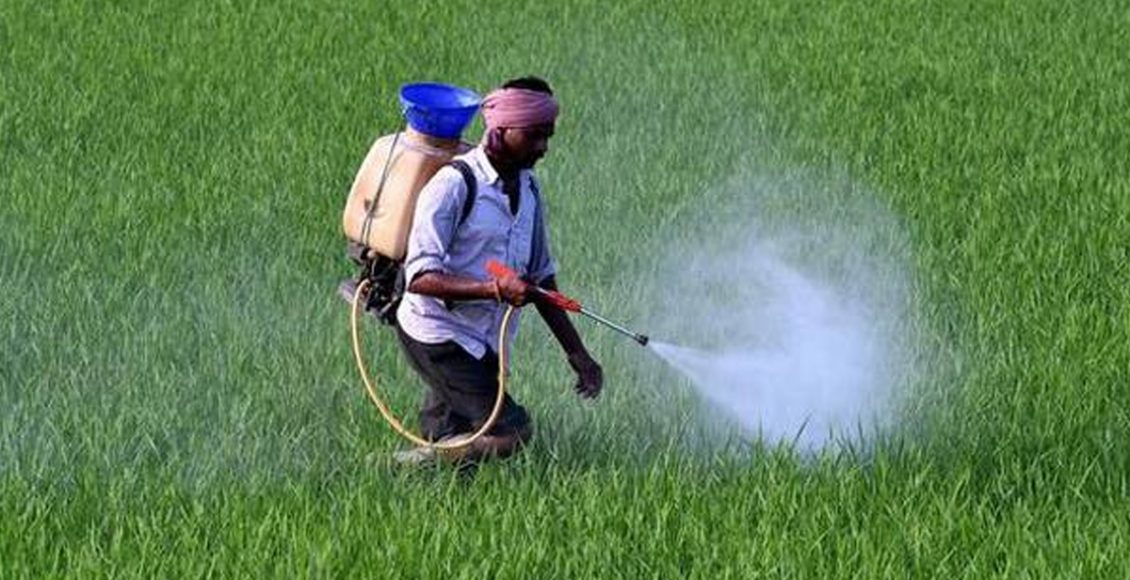
Pesticides Management Bill, 2020 – A step towards restricting the use of spurious pesticides and regulating the pesticide market
In February 2020, the Union cabinet approved the Pesticides Management Bill (PMB), which is now tabled in the Rajya Sabha to replace the Insecticides Act, 1968. This newly proposed bill aims to regulate the pesticide market by ensuring safe production, distribution, storage, and disposal of effective pesticides. Currently, India is the 4th largest producer of agrochemicals and is one of the fastest growing segments in the Indian agri-input industry. The Insecticides Act, 1968, enabled the registration of 273 pesticides and 746 formulations for use in the country, however fake/ unregistered pesticides still account for nearly 25% of pesticides sales in India. The use of these spurious pesticides is harmful for the plant, environmental, and human health. The PMB 2020 is aimed at removing the spurious pesticides from supply chain and also incorporates several elements desired by industry for long.
The new bill, PMB 2020, proposes that each pesticide be registered separately and only after verification of the information in the application, will the registration certificate be issued. For the insecticides registered under the Insecticides Act (1968), the registration will continue till the license expires and fresh applications for registrations under the new bill can be made. The state level database of the registered pesticides will be easily accessible by the public and will empower the farmer with the factual knowledge about the pesticides, its benefits, risks, and alternatives. PMB 2020 will also ensure that all the pesticides and their source of origin be registered, thereby curbing any false/ misleading claim by the manufacturers. If found guilty of misleading claims, manufacturers will have to pay heavy penalties and up to five years of imprisonment. To ensure that the key features of PMB 2020 are enforced upon, it also proposes a Central Pesticide Board, Registration Committee, Licensing Officer, and a Pesticide Inspector.
The provisions of PMB 2020 support the farmers’ interests by ensuring that the claims are made by the registered manufacturers which are verified and transparent. The bill also offers compensation to the farmers if there are any losses because of poor quality of the pesticides. But there are few other provisions of the bill which are of concern. Many committees including Pesticides Manufacturers & Formulators Association of India (PMFAI), Crop Care Federation of India (CCFI), Bhartiya Kisan Union, Bharat Krishak Samaj and others have strongly voiced their opinion on the PMB 2020 and have emphasized that certain provisions of the proposed bill, if passed in its current format will have adverse impact not only for manufacturers and the pesticide industry but also on the farmers’ livelihood. Few key concerns include:
- Re-registration of Insecticides: Under section 23 of the proposed bill, the bill demands the reregistration of insecticides already registered under the Insecticides Act, 1968 within two years, which might disrupt the supply chain and affect the farmers as these products might not be available on demand based on the Registration Committees denial or delay in granting registrations.
- Import of Formulations: The recommendations to promote domestic and indigenous industries and agricultural exports from India offered in the Ashok Dalwai Committee, constituted in 2018, are missing from PMB 2020. The Agrochemical industry is already struggling owing to the increasing taxation, import policies and lack of investment in the sector. PMB 2020, will add to its burden by promoting import of formulations and limiting export of agrochemicals that are banned in India. Currently, the PMB 2020 does not ensure compulsory registration of Technical Grade Pesticides before importing the formulations in India. This will not only hamper the creation of generic versions of the Technical Grade material by MSMEs in the country but also provide leverage to imported formulations which might be containing unregulated, low-grade, or even expired technical-grade pesticides sourced from unknown sources. Imported formulation will also have price implications on the farmers as they will have to pay higher prices instead of value priced local alternatives produced in the country.
- Registration and Rejection of Pesticides: The registration process suggested in the PMB 2020, is complicated and tedious as it requires, central registration, licensing, and sale permissions in respective states (Section 18). The provisions in PMB 2020, also permit the Registration Committee to suspend, cancel or ban the usage of pesticides without evaluating the scientific basis (Section 22) and the State Government to ban any pesticide (Section 35) which might hamper the availability of the pesticides and affect the farmers productivity. As per the new bill, violation during manufacturing of one pesticide might lead to revocation of all licenses which will affect the functioning capacity of the manufacturing units (Section 30) and availability of the other pesticides produced there. Alternatively, an independent regulator may work with the registration committee to ensure the interests of the farmers and the industry are safe guarded.
- Liabilities and De-criminalization: PMB 2020 imposes broad liabilities on pesticide manufacturers. Also, it does not clearly address the liability for the manufacturers for the entire product life cycle of the pesticides, including disposal, which might be crucial for the environment. The following clauses if introduced into the bill will ensure lesser disruption of supply chain for the farmers and lesser burden on the manufacturers: a) If a violation occurs during manufacturing for the given pesticide, the liability should be for only that pesticide. b) if the violation occurs down the supply chain or at the user end, the manufacturer must not be held liable, but instead liability at each stage for each stakeholder must be introduced. The severe penalties introduced in the PMB 2020 might discourage investors investing in pesticide manufacturing and R&D. This might disrupt the availability of various pesticides to farmers. Alternatively, as in other laws such as the Food Safety and Standards Act, 2006 (Section 69), monetary fine instead of prosecution, may be introduced.
- Bureaucracy: PMB 2020, introduces committees and officers to regulate the Pesticide market. This might cause delay in accessing the pesticides and affect the quick action needed in the fields during pest attacks.
Although the bill emphasizes on provisions for farmers to have access to reliable, less harmful pesticides, there is concern of ease of access of these pesticides, and the importance given to the import of formulations might affect the accessibility by farmers and manufacturing by smaller domestic players. Also, PMB 2020 does not address the concern of providing technical assistance and training to farmers on pesticide usage. Empowering states to decide locally relevant norms and tailoring customised awareness programs, will be beneficial. Addressing these concerns by opening the bill for discussion by experts in the field, before passing it, will make the bill more robust and beneficial for the farmers and manufactures and will enable the growth of the sector.
Author:

 Grow Beyond
Grow Beyond 

